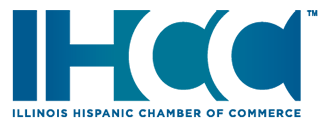Mayor Lori E. Lightfoot, alongside the Chicago Department of Public Health (CDPH), announced that Chicago is on track to be ready to move to phase three of its reopening framework in June given the progress on several key health metrics.
The last months have been a challenge for all of us, but we will adapt and overcome,” said Jaime di Paulo, President & CEO of the Illinois Hispanic Chamber of Commerce (IHCC).
“We all continue united, working in the recovery of this incredible city. Our Hispanic business community must be alert and in contact with the IHCC. “
The “Protecting Chicago” reopening framework lays out how the City plans to begin reopening amid COVID-19, and the details for each phase were informed by economic and health data, as well as a combination of input from industry and labor working groups, health experts and the public.
“The health and safety of residents has always been and will continue to be our singular, north star in dealing with this crisis,” said Mayor Lightfoot.
“While our health metrics don’t allow us to transition to Phase Three just yet, their trajectory over these past few weeks suggest that Chicago will be prepared to make that transition in June.”

The City is predicting that Chicago will be ready in early June to transition from phase two (Stay-at-Home) to phase three (Cautiously Reopen), which will still require strict physical distancing but would begin to allow for some industries to start reopening.


Regardless of industry reopening plans, all residents should continue to abide by important guidance in phase three, including:
- When in the presence of others, keeping 6 feet of physical distance apart and wear a face covering
- Non-business, social gatherings limited to <10 persons
- Phased, limited public amenities begin to open
- Stay at home if you feel ill or have come into contact with someone with COVID-19
- Continue to physically distance from vulnerable populations
- Get tested if you have symptoms
Industry-specific guidelines will be released the week of May 25, and will include details such as how businesses can engage in healthy interactions between workers and customers, how to maintain safe working spaces and conditions, and how to design and monitor workplace operations to create flexibility and further safety for employees and customers.
Phase three will be marked by a cautious reopening of certain industries at limited capacity, followed by incrementally increasing those capacities based on health criteria progression and adherence.
Several industry sub-sectors will be allowed to open at limited capacity in early June, and their respective capacities may increase later in phase three. These sub-sectors include:
- Childcare centers
- In-home family childcare
- Park facilities (non-Lakefront, does not include contact sports)
- Libraries
- Office-based jobs
- Professional services
- Real estate services
- Hotels/lodging
- Outdoor attractions (e.g. boating – not including The Playpen, non-Lakefront golf courses)
- Retail stores (non-essential)
- Personal services (e.g., hair/nail salons, barbershops, tattoo parlors)
- Restaurants and coffee shops (outdoor dining)
Other industry sub-sectors may open later in phase three if proper safety measures can be put in place, and more information on those guidelines is still to come:
- Summer programs & youth activities (e.g., Park District, private summer camps)
- Religious services
- Gyms
- The Lakefront
- Limited-capacity outdoor performances
- Museums
Industries that are already open will continue or expand operations in phase three:
- Manufacturing
- Construction
- Warehousing
- Hospitals
- Dentists
- Community mental health
- Federally Qualified Health Centers
- Public transit
- Regional transit
- Rideshare & taxis
For the time being, schools, playgrounds, bars and lounges, and large venues (stadiums, indoor theaters, music venues, convention centers) will remain closed.
“We have said all along that the data and science will lead us in our decision making around the COVID-19 response and have been tracking the metrics on a daily basis throughout the outbreak. And I’m happy to say we continue to see positive trends in several key areas and are on track to move into the next phase of our response some time next month,” said CDPH Commissioner Allison Arwady, M.D.
“While we’re not out of the woods yet and we all still need to take proper precautions, it’s clear the stay-at-home order and all the social distancing we’ve been doing has been working: we’ve prevented the health system from becoming overwhelmed and saved lives, and we should all be thankful and proud of that fact.”
Progress has been made on a set of health metrics that will allow Chicago to transition from phase two (Stay-at-Home) to phase three (Cautiously Reopen), however, if new data show the reopening has in any way become unsafe for Chicagoans, the City will swiftly move backward into Stay-at-Home.
The City will continue to watch that data every day, paying particular attention to the Black and Latinx communities that have been most impacted by the outbreak.



